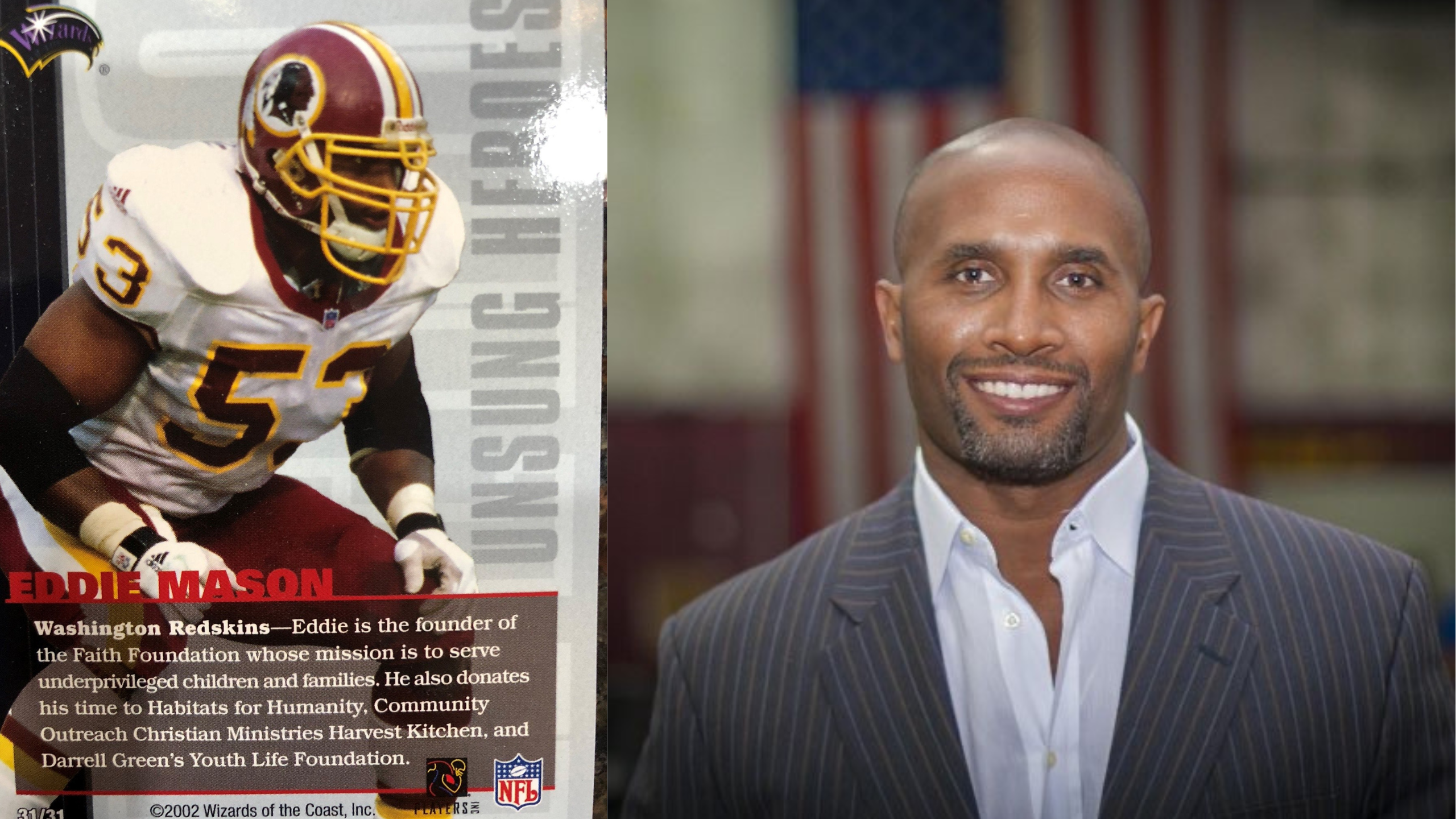
In the next profile of this series, Eddie discusses how he initially engages, common challenges, and advice for transitioning players.
The NFL Transition Coach program uses a peer-to-peer coaching model that empowers trained NFL Legends to offer structured guidance and support to players transitioning out of the NFL. NFL Total Wellness provides Transition Coaches with at least 70 hours of training to equip them with the skills necessary for effective relationship building, crisis management, and coordination of care. This interview series briefly profiles the coaches who assist players as they navigate the unique challenges of life after the game.
Eddie Mason was a linebacker for the New York Jets, Jacksonville Jaguars, and Washington Redskins during the 8 years he played for the NFL. He is now an author and certified trainer at Mase Training, his training facility and gym. Eddie currently serves as the lead Transition Coach and has been a coach since the program began in 2013. In this profile, we have drafted a narrative based on a small section of Eddie’s responses to three important questions.
"We're going to take what you learned from the game and apply it to a new arena of life. The most important piece is asking the right questions that can help them find their purpose in their career, their life, their family, their wellness and most importantly their overall health."
In discussing how he initially engages the players that he coaches, Eddie passionately emphasizes the importance of asking direct questions and actively listening to the players he coaches. He notes that this approach allows him to meet the player where he is and develop a thorough understanding of what the current needs are. Eddie recognizes that the process of transitioning out of the game is one that is emotionally complex. In his opinion, one of the most important aspects of engagement is ensuring that the player feels that he has a safe space and feels heard.
"One of the things is isolation. Finding that locker room experience. It's hard to duplicate that. I call it a room full of high achievers. Men who have achieved the pinnacle of what you would call success. In this case, it's in professional sports, but the reality is that they’re wired for success. Now, you're transitioning and what do you do now?"
Eddie recognizes that in this transition, a player can lean into isolation, feel a loss of identity, and may struggle with many other concerns such as family conflict, financial difficulty, and even substance use. Using a strengths-based approach, Eddie works with each transitioning player to educate them about the wide range of resources they have access to. He identifies a number of crucial supports including but not limited to the NFL Legends Community, the Player Care Foundation, the Trust, and the Professional Athlete Foundation, and describes his role as often a conduit for connecting transitioning players to these programs. Eddie applauds the focus that is placed on providing support to players during this difficult transition as well as the commitment that is shared by his fellow coaches to serve not just the former player, but his family as well.
"I would encourage all players, transition coaches, NFL Legends, and their families to have a daily self-care plan where you are taking a moment to just breathe again."
Eddie’s ultimate goal in doing this work is to ensure that every player understands that he is not alone. There are resources and individuals invested in supporting every player as he takes his post-NFL steps, and given the complexity of the transition experience, it is essential to implement a self-care plan to make the process just a little bit easier.
